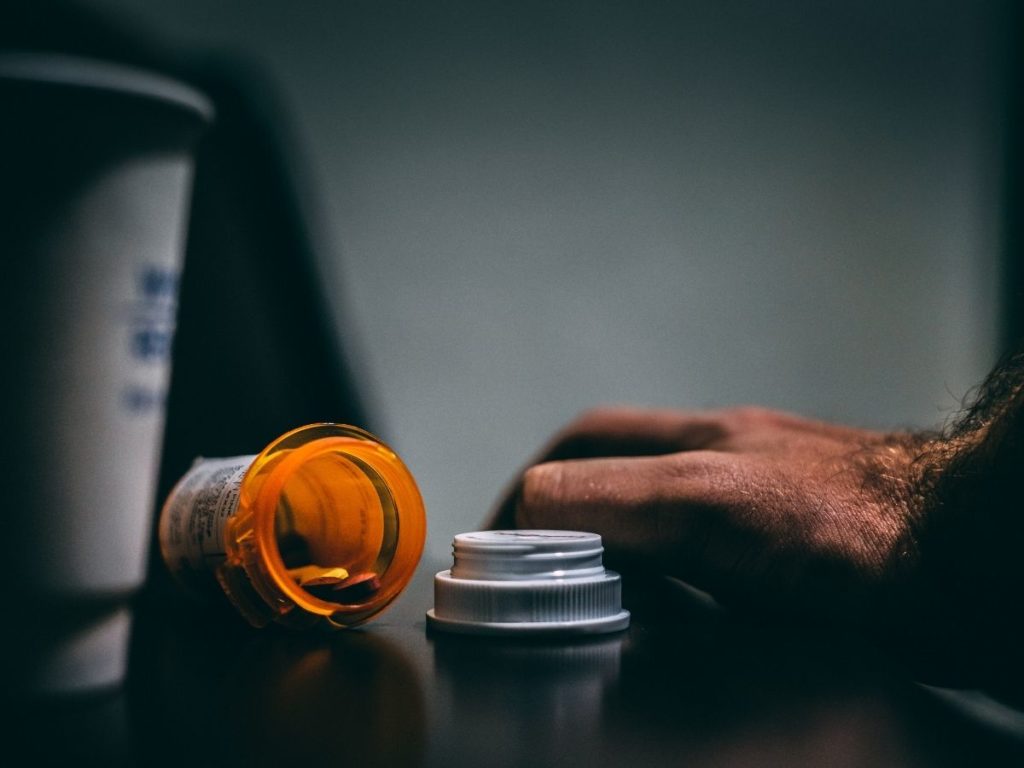What is Fentanyl Addiction?
Fentanyl addiction is a serious condition that affects more Americans than one would think. Synthetic opioids, including fentanyl, are now the most common drugs involved in drug overdose deaths in the United States. According to the National Institute on Drug Abuse, in 2017, 59.8 percent of opioid-related deaths involved fentanyl compared to 14.3% in 2010.
Fentanyl is a powerful synthetic opioid that is similar to morphine but is 50 to 100 times more potent. It is a prescription drug that is also made and used illegally. Like morphine, it is a medicine that is typically used to treat patients with severe pain, especially after surgery.
It is also sometimes used to treat patients with chronic pain who are physically tolerant to other opioids. Tolerance occurs when you need a higher and/or more frequent amount of a drug to get the desired effects. In its prescription form, fentanyl is known by such names as Actiq®, Duragesic®, and Sublimaze®.
When prescribed by a doctor, Fentanyl can be given as a shot, a patch that is put on a person’s skin, or as lozenges that are sucked like cough drops.
The illegally used Fentanyl most often associated with recent overdoses is made in labs. This synthetic Fentanyl is sold illegally as a powder, dropped onto blotter paper, put in eye droppers and nasal sprays, or made into pills that look like other prescription opioids.

Some drug dealers are mixing Fentanyl with other drugs, such as heroin, cocaine, methamphetamine, and MDMA. This is because it takes very little to produce a high with Fentanyl, making it a cheaper option. This is especially risky when people taking drugs don’t realize they might contain Fentanyl as a cheap but dangerous additive. They might be taking stronger opioids than their bodies are used to and can be more likely to overdose.
Fentanyl Overdose Symptoms
A person that is overdosing on Fentanyl may exhibit the following signs and symptoms:
- Low blood pressure
- Drowsiness
- Dizziness
- Nausea and vomiting
- Limp body
- Changes in pupillary size
- Cold and clammy skin
- Blue colored lips and fingernails (cyanosis)
- Slowed or stopped breathing
- Decreased heart rate
- Reduced or loss of consciousness
- Coma
The presence of the “opioid overdose triad of symptoms,” which is comprised of pinpoint pupils, respiratory depression, and a decreased level of consciousness, are strongly suggestive of Fentanyl overdose symptoms.
To better educate first responders and bystanders on how to identify people who have Fentanyl overdose symptoms, the Centers for Disease Control and Prevention conducted a study to investigate the characteristics of Fentanyl overdose symptoms. During the study researchers interviewed more than 60 people with firsthand accounts of a Fentanyl overdose; all of the respondents had illicitly used Fentanyl during the past year and either witnessed an overdose or survived an overdose in the past six months.
One of the most commonly described characteristics of the Fentanyl overdose symptoms was the rapid speed of onset, with 75% of the respondents describing symptoms of an overdose occurring within seconds to minutes. One respondent stated, “I would say you notice it [a Fentanyl overdose] as soon as they are done [injecting the Fentanyl]. They don’t even have time to pull the needle out [of their body] and they’re on the ground.” When asked to describe what happens during a Fentanyl overdose, the most common responses were:

- A person’s lips immediately turn blue
- Gurgling sounds with breathing
- Stiffening of the body or seizure-like activity
- Foaming at the mouth
- Confusion or strange behavior before the person becomes unresponsive
Fentanyl brand names and forms
This drug can come with different names and forms, here are some of them:
- Actiq: This form of Fentanyl comes as a lozenge on a plastic stick administered under the tongue like a lollipop. It is used for patients already on pain-relieving medications and has some military applications.
- Duragesic: The Fentanyl patch was introduced in the 1990s. It is prescribed to treat moderate to severe pain, and its effects can last for up to 3 days.
- Sublimaze: Generally administered in hospitals, sometimes alongside Anesthetics, Sublimaze is the injectable form of Fentanyl. It is used to manage pain before and after surgeries.
- Subsys: Subsys is a sublingual spray administered under a patient’s tongue to deliver immediate pain relief. Its purpose is to treat breakthrough cancer pain.
- Abstral: Also used for Opioid-tolerant patients with breakthrough cancer pain, Abstral is the quick-dissolve tablet version of Fentanyl and is placed under the tongue for immediate relief.
- Lazanda: Lazanda is a Fentanyl nasal spray administered in the same manner as a common nasal decongestant spray. It is predominantly used to treat pain in cancer patients.
Fentanyl works by blocking pain receptors in the brain and increasing the production of the happiness-inducing chemical dopamine. According to the U.S. Drug Enforcement Administration (DEA), street names for Fentanyl include:
- Apace
- China Girl
- China Town
- China White
- Dance Fever
- Goodfellas
- Great Bear
- He-Man
- Poison
- Tango & Cash
Fentanyl Drug Addiction Effects
Fentanyl represents a high risk of addiction and abuse regardless of its prescription form. Those ingesting Fentanyl at unprescribed levels experiences an intense euphoria and sense of relaxation similar to a Heroin “high.”
The most commonly known symptoms of Fentanyl abuse might include:
- Slowed breathing
- Seizures
- Headaches
- Dizziness
- Blurred vision
- Constipation
- Nausea and vomiting
- Itching
- Euphoria
- Mellowness
- Drowsiness
Fentanyl abuse is especially dangerous to those without tolerance to Opioids. The substance’s already-elevated risk of overdose is multiplied when someone without a tolerance abuses it. Mixing Fentanyl with illicit Narcotics like Heroin or Stimulants like Cocaine amplifies the drug’s damaging side effects. Whether taken as prescribed or abused recreationally, Fentanyl is a volatile and potentially lethal drug.
Signs of Fentanyl Drug Addiction
Since many patients don’t believe Fentanyl harbors significant addictive potentials like Heroin or other street drugs, Fentanyl has a higher likelihood for accidental and intentional abuse.
Fentanyl impacts the Central Nervous System (CNS) to a significant degree, causing excess amounts of dopamine to flood and chemically alter the brain over time. Due to these neurochemical changes, someone prescribed Fentanyl might become dependent on the drug and turn to illegal methods of getting it after exhausting their prescribed amount.
Once someone develops a tolerance to Fentanyl’s Narcotic properties, he or she will depend on it to feel “normal,” requiring more of the drug to reach the previous sensations.
Fentanyl use can escalate from abuse to full-blown addiction rapidly. Thanks to the Diagnostic and Statistical Manual of Mental Disorders criteria for diagnosing substance use disorder, healthcare professionals can pinpoint problematic behavior like building a tolerance or suffering withdrawal symptoms.

Fentanyl Overdose Treatment
Please be aware of the Fentanyl overdose symptoms. If you suspect someone is suffering from a Fentanyl overdose you must act quickly. The most important step is to call 911 so that the person can receive immediate medical attention. Upon arrival, medical personnel will likely administer naloxone if they suspect Fentanyl is involved. When administered immediately, this drug can reverse Fentanyl overdose symptoms.
Once someone has recovered from an overdose, they must seek immediate help to address their issues with Fentanyl dependency and abuse. The first step is to undergo medical detox in a professional rehab center, where the symptoms of Fentanyl withdrawal can be properly monitored and treated. Like other opioid addictions, subsequent behavioral therapy and medication have proven to be an effective treatment approach for people with Fentanyl addiction.
Fentanyl Drug Addiction Treatment
Like other opioid addictions, a convergence of medication with behavioral therapies has been shown to be effective in treating people with Fentanyl Drug Addiction.
Medications: Buprenorphine and methadone work by binding to the same opioid receptors in the brain as Fentanyl, reducing cravings and withdrawal symptoms. Another medicine, Naltrexone, blocks opioid receptors and prevents Fentanyl from having an effect. People can discuss treatment options with their health provider.
Counseling: Behavioral therapies for addiction to opioids like Fentanyl can help people modify their attitudes and behaviors related to drug use, increase healthy life skills, and help them stick with their medication. Some examples include:
- Cognitive behavioral therapy, which helps modify the patient’s drug use expectations and behaviors, and effectively manage triggers and stress
- Contingency management, which uses a voucher-based system giving patients “points” based on negative drug tests. They can use the points to earn items that encourage healthy living
- Motivational interviewing, which is a patient-centered counseling style that addresses a patient’s mixed feelings to change
These behavioral treatment approaches have proven effective, especially when used along with medicines.
Reclaim your life from Fentanyl Addiction
Fentanyl addiction is a condition that can cause significant health problems, such as an overdose. We Level Up Washington treatment center can provide you, or someone you love, the tools to recover from this with professional and safe primary mental health treatment. Feel free to call us to speak with one of our counselors. We can inform you about this condition and clarify issues like Fentanyl overdose symptoms. Our specialists know what you are going through. Please know that each call is private and confidential.
We Level Up Washington Mental Health Center: Primary Mental Health Treatment with Secondary Co-Occurring Treatments
The We Level Up Washington primary mental health center stands ready to help. Offering secondary treatment programs for underlying conditions of Fentanyl addiction that frequently fuel harmful behaviors. Taking that first step to get the professional support you need can be life-transforming.
We know how mental health disorders and secondary co-occurring substance abuse diagnoses directly affect one another. The We Level Up Washington treatment center provides recovery programs through science-based mental health treatments that can help you feel better. Call us now for a free mental health evaluation!
Inpatient medical detox and residential primary addiction treatment may be available at affiliated facilities at other We Level Up Treatment Centers locations beyond the Washington treatment facility.

